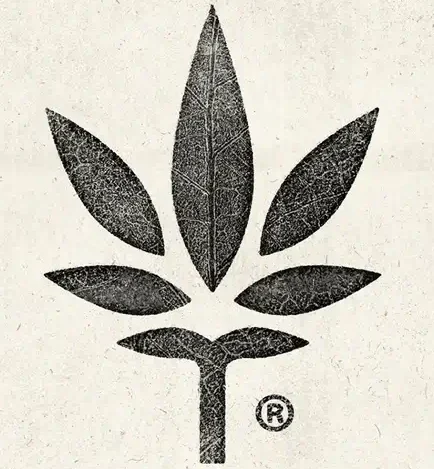Summary
AL-LAD, scientifically recognized as 6-allyl-6-nor-LSD, represents a psychedelic substance that shares structural similarities with lysergic acid diethylamide (LSD).[2] This compound is documented in Alexander Shulgin’s book “TiHKAL” (Tryptamines I Have Known And Loved). AL-LAD synthesis begins with nor-LSD as a precursor, incorporating allyl bromide as a critical reactant.
| Identifiers | |
|---|---|
| IUPAC name | |
| CAS Number | 65527-61-9 |
|---|---|
| PubChem CID | 15227511 |
| ChemSpider | 21106248 |
| UNII | 020O2SR91L |
| ChEMBL | ChEMBL281787 |
| CompTox Dashboard (EPA) | DTXSID30215822 |
| Chemical and physical data | |
| Formula | C22H27N3O |
| Molar mass | 349.478 g·mol−1 |

Effects in humans
AL-LAD exhibits subtle variations in its effects compared to LSD and tends to have a slightly shorter duration, but its potencies are akin. An effective dose of AL-LAD is typically reported to range from 50 to 150 micrograms. The recreational use of AL-LAD has a limited and relatively uncommon history, initially emerging in Ireland and the UK before gaining international attention.
Chemistry
AL-LAD does not induce a color alteration when subjected to Marquis, Mecke, or Mandelin reagents. However, it does trigger a purple color change with Ehrlich’s reagent due to the indole moiety within its chemical structure.
Legal status
Denmark
- AL-LAD is prohibited in Denmark.
Finland
- AL-LAD is listed among the government’s decreed psychoactive substances banned from consumer markets.
Latvia
- AL-LAD’s legality in Latvia is uncertain. Although it is not explicitly scheduled, it may be subject to control as an LSD structural analog due to an amendment made on June 1, 2015.
Romania
- Although AL-LAD is illegal in Romania, it is not directly listed among controlled substances; it falls under an analog act.
Sweden
- As of January 26, 2016, AL-LAD was included in the Narcotic Drugs Punishments Act under Swedish Schedule I, encompassing substances, plant materials, and fungi with no recognized medical use. This decision was published by the Medical Products Agency (MPA) in regulation HSLF-FS 2015:35, where it is identified as 6-allyl-6-nor-LSD, AL-LAD, and 6-allyl-N, N-diethyl-9,10-didehydroergolin-8-carboxamide.
Switzerland
- AL-LAD is prohibited in Switzerland.
United Kingdom
- AL-LAD is unlawful in the UK. On June 10, 2014, the UK Advisory Council on the Misuse of Drugs (ACMD) recommended its inclusion in the UK Misuse of Drugs Act as a class A drug despite a lack of identified harm associated with its use. The UK Home Office accepted this recommendation, and the substance was banned effective January 6, 2015, as part of The Misuse of Drugs Act 1971 (Amendment) (No. 2) Order 2014.
United States
- At the federal level in the United States, AL-LAD is considered a Controlled Substance. Legal classification deems AL-LAD as an analog of LSD, making sales or possession with intent for human consumption potentially prosecutable under the Federal Analogue Act.
fAQ
1. What is AL-LAD?
AL-LAD, short for 6-allyl-6-nor-LSD, is a psychedelic substance analog of lysergic acid diethylamide (LSD). It is known for its hallucinogenic effects.
2. How does AL-LAD differ from LSD?
AL-LAD is often compared to LSD, but it is reported to have subtly different effects. While both share psychedelic properties, AL-LAD is noted for having a slightly shorter duration of action compared to LSD.
3. What is the typical dose of AL-LAD?
An effective dose of AL-LAD typically ranges from 50 to 150 micrograms. Users should exercise caution and be aware of their tolerance and sensitivity when determining dosage.
4. Is AL-LAD legal in my country?
The legal status of AL-LAD varies by country. It is advisable to check the specific laws and regulations regarding AL-LAD in your region, as it may be illegal in some countries.
5. Can I use reagent tests to identify AL-LAD?
AL-LAD does not produce color changes with Marquis, Mecke, or Mandelin reagents. However, it does cause a purple color change with Ehrlich’s reagent due to the indole moiety in its structure.
6. Is AL-LAD considered a controlled substance in the United States?
At the federal level in the United States, AL-LAD is regarded as a Controlled Substance. It is legally considered an analog of LSD, which means that sales or possession with the intent for human consumption could be subject to prosecution under the Federal Analogue Act.
References
- Arrêté du 20 mai 2021: This French order, dated May 20, 2021, amended the order of February 22, 1990, setting the list of substances classified as narcotics. It is an important legal reference regarding controlled substances in France.
- Scientific Research: Various scientific studies and publications provide valuable information about substances like AL-LAD. Researchers have explored its properties, effects, and chemical characteristics. These studies contribute to our understanding of AL-LAD.
- TiHKAL: “TiHKAL: The Continuation” by Alexander Shulgin is a renowned book that discusses various tryptamines, including AL-LAD. Shulgin’s work is influential in the field of psychopharmacology.
- EcstasyData: EcstasyData.org is a resource that provides information about substances, including AL-LAD. It offers insights into the composition and testing of various compounds, helping users make informed decisions.
- UN Conventions: The United Nations plays a significant role in regulating and controlling psychotropic substances. Information about international conventions can provide insights into the global approach to substances like AL-LAD.
- National Regulations: Different countries have varying regulations concerning AL-LAD and similar substances. It’s important to be aware of the specific laws in your country regarding the possession and use of AL-LAD.
- Reagent Testing: Reagent testing is a method used to identify substances like AL-LAD. Different reagents produce distinct reactions, helping users verify the presence of specific compounds.
- Legal Status: AL-LAD’s legal status can vary from one country to another. Some nations have classified it as illegal, while others may not have specific regulations in place. Always check local laws and regulations.
- Government Decrees: Government decrees, such as those in Finland, can outline regulations related to consumer markets and controlled substances. These decrees provide legal frameworks for managing substances like AL-LAD.
- Controlled Substances in Latvia: In Latvia, substances similar to AL-LAD may be controlled as LSD structural analogs. Amendments to regulations can impact their legal status.
- Swiss Regulations: Switzerland, like many countries, has its own regulations governing controlled substances. Understanding these regulations is crucial for compliance and safety.
- UK Misuse of Drugs Act: In the United Kingdom, the Misuse of Drugs Act classifies substances like AL-LAD. Regulatory decisions made under this act can impact their legal status.
- US Federal Law: AL-LAD’s legal status in the United States is governed by federal law. It is considered an analog of LSD, which carries specific legal implications under the Federal Analogue Act.
